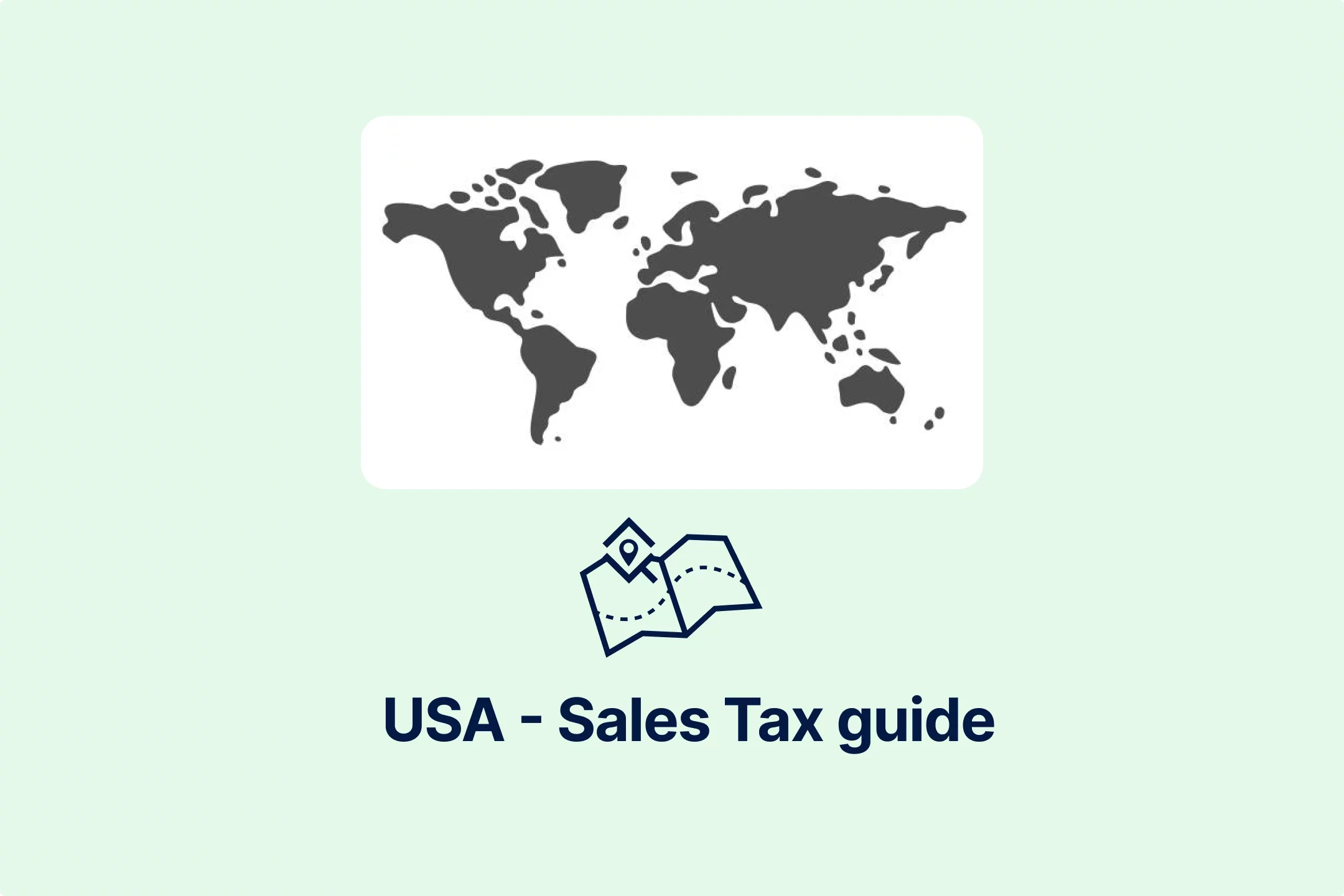Tennessee Sales and Use Tax Guide | Economic Nexus & Compliance Rules

| Economic Nexus Threshold | State Tax Rate | Range of Local Rates | Streamlined Sales Tax Status | Administered by |
|---|---|---|---|---|
| USD 100,000 | 7.0% | 1.5-2.75% | Associate Member | Tennessee Department of Revenue |
Sales and Use Tax Basics in Tennessee
Sales Tax
Sales tax is a primary source of revenue in Tennessee, accounting for nearly 60% of all collected taxes. The State has a 7% statewide sales tax and local sales tax rate that varies from one county or city to another. Under Tennessee tax rules and regulations, sales tax applies to in-state retail sales of taxable goods. Retail sales include selling, renting, or leasing tangible goods and selling specified taxable services, amusements, software, and digital products.
Use Tax
Use tax applies when taxable goods are used, consumed, distributed, or stored in the state and the seller did not collect sales tax on those goods. More specifically, the use tax applies to out-of-state retail sales of taxable goods shipped to Tennessee consumers by an out-of-state retailer who is not required to register for sales tax. In addition, use tax applies on a contractor’s use of tangible goods in the performance of a contract where no sales and use tax was paid on the retail purchase.
Tennessee State Sales and Use Tax Rates
As previously mentioned, a state sales tax is set at 7%. The general sales tax rate applies to most tangible goods, taxable services, and other taxable products. However, there are some exceptions to this rule. Therefore, a 4% sales tax rate applies to food and food ingredients, a 4.25% rate for aviation fuel, a 1.5% rate for electricity for qualified data centers, and an 8.25% rate for video programming services.
In addition, local sales tax rates must be applied when selling taxable supplies. Tennessee has a maximum local sales tax rate of 2.75%.
Tax-Exempt Transactions
Tax-exempt transactions are divided into entity-based, product-based, and use-based exemptions. Entity-based exemptions depend on who the buyer is or what the buyer does. Farmers, timber harvesters, nursery operators, and dealers fall into this category.
Some may be exempt from the sales and use tax depending on the product bought. Examples of product-based exemptions include gasoline, textbooks, school meals, and several healthcare products.
Finally, use-based exemptions are allowed for specific types of tangible goods or services put to a particular exempt use. For example, concrete, which is typically taxable, may be exempt when bought to construct a dam for electricity production.
Nexus Rules in Tennessee
Retail sellers may be liable for sales tax purposes if they establish a nexus in Tennessee. Historically, physical presence was the primary way to become subject to sales tax rules and regulations. However, with the South Dakota v. Wayfair ruling, Tennessee, like other US states, introduced economic and marketplace nexus. Furthermore, Tennessee has rules in place for the so-called click-through nexus.
Physical Nexus
Typically, a physical nexus is established by having inventory in the state or using in-state independent contractors to fulfill Tennessee retail sales of that inventory, and having a store, office, warehouse, showroom, or other physical place for business.
Additionally, retail sellers who have employees, agents, or sales representatives in Tennessee, lease or rent tangible goods, repair, install, or assemble tangible goods, or use an agent or third party to perform these services are also considered to have a physical presence in the state, thus making them responsible for registering, collecting, and remitting sales tax.
Economic Nexus
Economic nexus aims to subject out-of-state retail sellers without physical nexus to sales tax once they exceed the threshold. Therefore, if an out-of-state retail seller makes sales that exceed USD 100,000 to consumers located in Tennessee in the current or previous tax year, it establishes economic nexus and, therefore, must register for sales tax purposes.
Marketplace Nexus
If a marketplace facilitator or seller facilitates or makes retail sales of value above USD 100,000 in the previous 12 months, it must register for, collect, and remit sales tax.
Click-Through Nexus
If an out-of-state retail seller uses an in-state party to route consumers to its website, online store, or marketplace, it has a click-through nexus. The click-through nexus is treated in the same way as the physical nexus. Thus, any retail seller with a click-through must register for sales tax purposes and collect and remit sales tax on taxable transactions.
Taxable Goods and Services in Tennessee
Generally, sales tax applies to all retail sales of tangible goods, except those explicitly exempt. Tangible goods can be seen, weighed, measured, felt, or touched, or in any other manner perceptible to the senses. Additionally, electricity, water, gas, steam, and prewritten computer software are all considered tangible goods from a sales tax perspective and are subject to sales tax.
Whereas tangible goods are generally taxable, services are taxable only if explicitly listed. Therefore, the list of taxable services includes repair and installation of tangible goods or computer software, lodging services and rooms, short-term rentals, parking, and storing of motor vehicles, telecommunications services, and television programming services.
Bundled Transactions and the True Object Test
Bundled transactions include two or more separately identifiable items or products sold for a single price. In this case, the price is not displayed as an item-by-item price, but as a single sales price.
If two or more items are sold under a single sales price, and at least one item is subject to sales tax, the entire sales price is taxable. Additionally, special bundling provisions exist for transactions involving internet access, telecommunication services, ancillary services, video programming services, and direct-to-home satellite services.
E-Commerce Framework
Remote or out-of-state sellers who do not have a physical presence, that is, who did not establish a physical nexus in Tennessee, may still be responsible for collecting and remitting sales and use tax for their in-state retail sales.
If the total retail sales of remote or out-of-state sellers exceed the economic nexus threshold of USD 100,000, they must collect and remit state and local sales and use tax and report their sales based on the consumer's shipped-to or delivered-to address.
Marketplace Rules
Marketplace sellers are retail sellers who sell their tangible goods and taxable services through a marketplace. If a marketplace seller exceeds the USD 100,000 threshold, it is not required to register for sales tax if all its taxable sales are made through a marketplace facilitator that collects and remits sales tax in Tennessee.
However, suppose marketplace sellers make taxable sales through their websites in addition to marketplace sales. In that case, they may be required to register for sales and use tax if they exceed the registration threshold. Furthermore, suppose a marketplace seller exceeds the threshold and the marketplace facilitator does not meet the sales tax registration requirements. In that case, the marketplace seller is responsible for registering for, collecting, and remitting sales tax.
Digital Goods and Services
Tennessee rules and regulations specify digital goods and services under Specified Digital Products. Under the statewide rules, digital audio-visual works, digital audio works, and digital books are subject to sales and use tax, regardless of whether they are downloaded, podcasted, streamed, or accessed online.
Additionally, prewritten and customized computer software is taxable in Tennessee if provided to a consumer through remote access on a tangible storage medium, such as a USB, or electronically to the customer’s computer.
The temporary or permanent right to access a video game, regardless of whether it is charged on a per-use, per-use, per licence, subscription, or other basis, is taxed at a 7% state sales and use tax plus the applicable local taxes.
Digital Marketplace
The digital marketplace became subject to sales and use tax rules in 2020, following the implementation of marketplace nexus legislation. Digital marketplaces may be platforms, forums, internet websites, or dedicated sales software applications where tangible goods or services subject to sales tax are offered for sale.
Digital Platform Operator
Digital platform operators, or marketplace facilitators, facilitate the sale of a marketplace seller's taxable tangible goods or services through a digital marketplace. They directly or indirectly collect buyer payments and transmit them to the marketplace sellers.
The marketplace facilitator becomes liable for sales and use tax purposes once the value of facilitated or sold tangible goods or taxable services exceeds USD 100,000. Once a marketplace facilitator exceeds the threshold, it is considered a seller responsible for collecting and remitting sales tax.
However, there are exceptions to these rules. Apart from the situation in which the marketplace did not exceed the threshold, marketplace facilitators are excluded from sales tax responsibilities if they demonstrate that substantially all the marketplace sellers for whom they facilitate sales are registered sellers for sales tax purposes.
Additionally, if the marketplace facilitator and seller have a contract stating that the seller will collect and remit applicable taxes, the responsibility shifts onto the seller.
For this exemption to apply, the seller must have annual gross sales in the US of over USD 1 billion including the gross sales of any related entities, and in the case of franchised entities, including the combined sales of all franchisees of a single franchisor, must provide evidence to marketplace facilitator that it is registered for sales tax, and notify the the Commissioner that it will collect and remit all applicable taxes on its sales through the marketplace facilitator.
Filing and Payment Requirements in Tennessee
Sales and use tax returns must be filed electronically, where the filing frequency depends on the tax liability. Therefore, a monthly sales and use tax return is required if the taxable persons meet the filing threshold of USD 400 gross sales per month or USD 4,800 in gross sales per year.
Taxable persons whose tax liability in 12 consecutive months is on average USD 1,000 or less can file monthly or quarterly tax returns. Annual tax returns are only allowed to manufacturers, wholesalers, and marketplace sellers who sell through a marketplace facilitator that collects Tennessee sales and use tax. Payment due dates are directly linked to the filing frequency.
Penalties for Non-Compliance with Sales and Use Tax Requirements
The Tennessee Department of Revenue imposes penalties for failing to file a necessary tax return, filing a late tax return, and failing to comply with payment due dates. The penalty for failing to file, late filing, or late payment is computed at a rate of 5% per month. The maximum penalty is 25% of the due amount, whereas the minimum is USD 15.
Additionally, if it is determined that the taxable persons intended to evade the tax and commit tax fraud, a penalty of 100% of the underpayment will be imposed on them. Furthermore, the interest rate of 12.5% applies to any taxes not paid by the due date. However, it is essential to underline that the interest rate is calculated every July 1 using a statutorily imposed formula.

Featured Insights

Burkina Faso FEC E-Invoicing Mandatory July 2026
🕝 February 24, 2026More News from United States
Get real-time updates and developments from around the world, keeping you informed and prepared.
-e9lcpxl5nq.webp)







-fd4vrjrcmo.webp)











-qoqtiao7l2.webp)





-o0xyg5unvs.webp)










-sug7vykj81.webp)

















-pofe7ucwz3.webp)









-de8hdb1bn3.webp)








-xbhr0m4jsb.webp)


-ae6fi6cjox.webp)














-b0fpsws1w1.webp)




















-x78wuofpzj.webp)
















-b44f1vjl1i.webp)

-priw8nq5xc.webp)


.png)

.png)






























